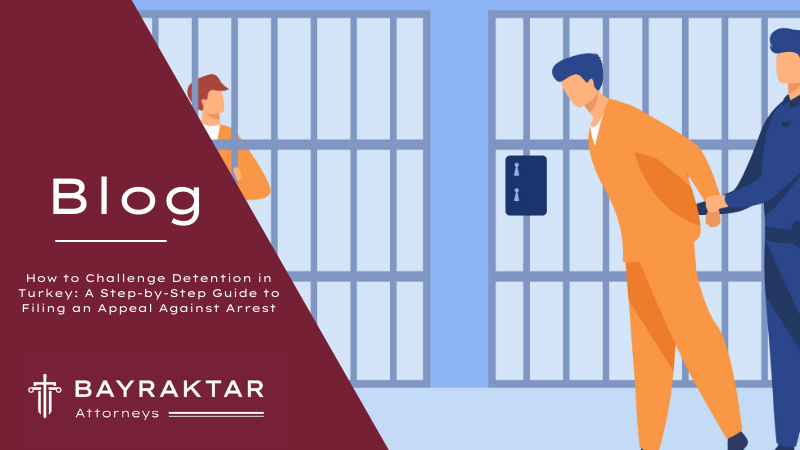
How to Challenge Detention in Turkey
Being detained or having a loved one placed under arrest in Turkey can be a distressing experience, particularly for foreigners who might not be familiar with the local legal system.
In Turkish law, there are mechanisms available for challenging detention. Known specifically as “tutukluluğa itiraz dilekçesi,” which translates to an appeal against detention, this legal remedy allows individuals to contest their arrest.
This blog aims to navigate you through the process of filing such an appeal, ensuring your right to a fair trial is upheld in accordance with Turkish law.
Understanding Your Right to Appeal
Under Turkish legal provisions, any person who has been detained has the right to appeal their detention.
This procedure is not just a formality; it is an essential part of the checks and balances designed to protect individual liberties.
It is important to act promptly, as the appeal process is time-sensitive. Engaging an experienced attorney who understands the intricacies of Turkish law will be your first step in initiating a successful challenge to detention.
Step 1: Consult with a Qualified Lawyer
Your ability to mount an effective appeal begins with consulting a lawyer who has expertise in Turkish criminal law. Given that the process involves specific legal terms and strict procedures, a local lawyer can be invaluable in navigating the system.
The lawyer will examine the grounds of the detention, ensuring that all procedural requirements have been met and that there are no legal flaws in the reasons for your arrest.
Step 2: Preparing the Appeal Document
The centerpiece of your appeal is the “tutukluluğa itiraz dilekçesi.” Your attorney will draft this document, presenting solid arguments as to why your detention is unwarranted.
This may involve citing violations of your legal rights, procedural errors, or lack of sufficient evidence. The appeal must be concise but comprehensive, addressing all pertinent legal points that support your case.
Step 3: Filing Your Appeal
Once your appeal document is ready, it needs to be filed with the appropriate criminal court of peace (Sulh Ceza Hakimliği) without delay.
Time is of the essence, as Turkish law stipulates strict deadlines for filing appeals against detention. Make sure all necessary documentation is included to avoid any processing delays which could adversely affect your case.
Step 4: The Decision Process
The judge will review your appeal and make a determination. This can result in a number of outcomes: your appeal could be accepted, leading to your release; your detention conditions could be altered (e.g., house arrest); or the appeal could be rejected, in which case you remain in detention.
If the appeal is not successful, your lawyer can guide you through additional legal avenues, such as applying to a higher court or even taking your case to the Constitutional Court or the European Court of Human Rights as necessary.
In summary, the process of challenging detention in Turkey involves understanding your legal rights, securing qualified legal representation, drafting a compelling appeal, adhering to strict deadlines, and navigating judicial review.
Always bear in mind that each case is unique, and this guide is a generalized overview. For specific advice tailored to your individual circumstances, consulting with an attorney is paramount.
If you require assistance or have further questions regarding challenging detention in Turkey, please do not hesitate to contact Bayraktar Attorneys. Our expertise in Turkish law, combined with our commitment to defending the rights of our clients, makes us a powerful ally in the fight for justice.







